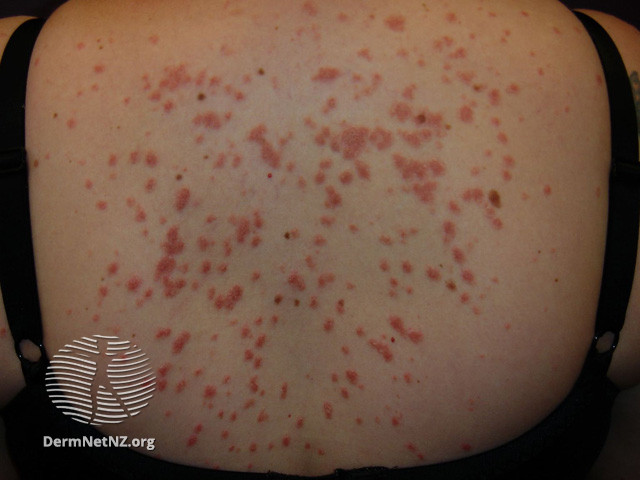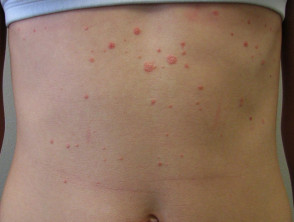 Guttate psoriasis is type of psoriasis that leads to numerous small, red, drop-shaped spots that are widespread on the trunk and limbs and may occur on the scalp and face.
Guttate psoriasis is type of psoriasis that leads to numerous small, red, drop-shaped spots that are widespread on the trunk and limbs and may occur on the scalp and face.
Hundreds of lesions may appear during a flare of guttate psoriasis.
According to the National Psoriasis Foundation, guttate psoriasis is second most common type of psoriasis, after plaque psoriasis, and about 10% of people with psoriasis develop guttate psoriasis. It occurs most commonly in children and adolescents.
Like all forms of psoriasis, guttate psoriasis is the result of overly rapid skin cell growth that leads to scaly, itchy lesions called plaques. The skin lesions of guttate psoriasis tend to have thinner scales and are flatter than the thickened plaques of other types of psoriasis.
Triggers of Guttate Psoriasis
In the case of guttate psoriasis, there is often a trigger, most commonly an infection with streptococcus (strep), the bacteria that causes strep throat. Strep can cause a flare-up even without causing a sore throat or other symptoms. Identifying and treating a suspected infection are important steps toward eliminating guttate psoriasis outbreaks.
Other triggers of guttate psoriasis include stress, injury to the skin, or certain medications (beta blockers for high blood pressure).
Treatment of Guttate Psoriasis
Although mild cases of guttate psoriasis can go away on their own, most people need some treatment.
Guttate lesions usually respond well to topical medications, but it can be difficult to apply the medicine to each of the widely scattered spots. Fortunately, guttate psoriasis also responds well to natural sunlight or phototherapy (UVB or PUVA), so these are frequently used as a first-line treatment.
It is only occasionally necessary to use systemic treatments such as cyclosporine, methotrexate, or oral retinoids (Soriatane®).
People who are susceptible to strep infections and endure multiple guttate psoriasis outbreaks may consider preventive doses of antibiotics to avoid a recurrence.
Image Source: DermNet NZ
Source: Vivacare
Last updated : 7/19/2021